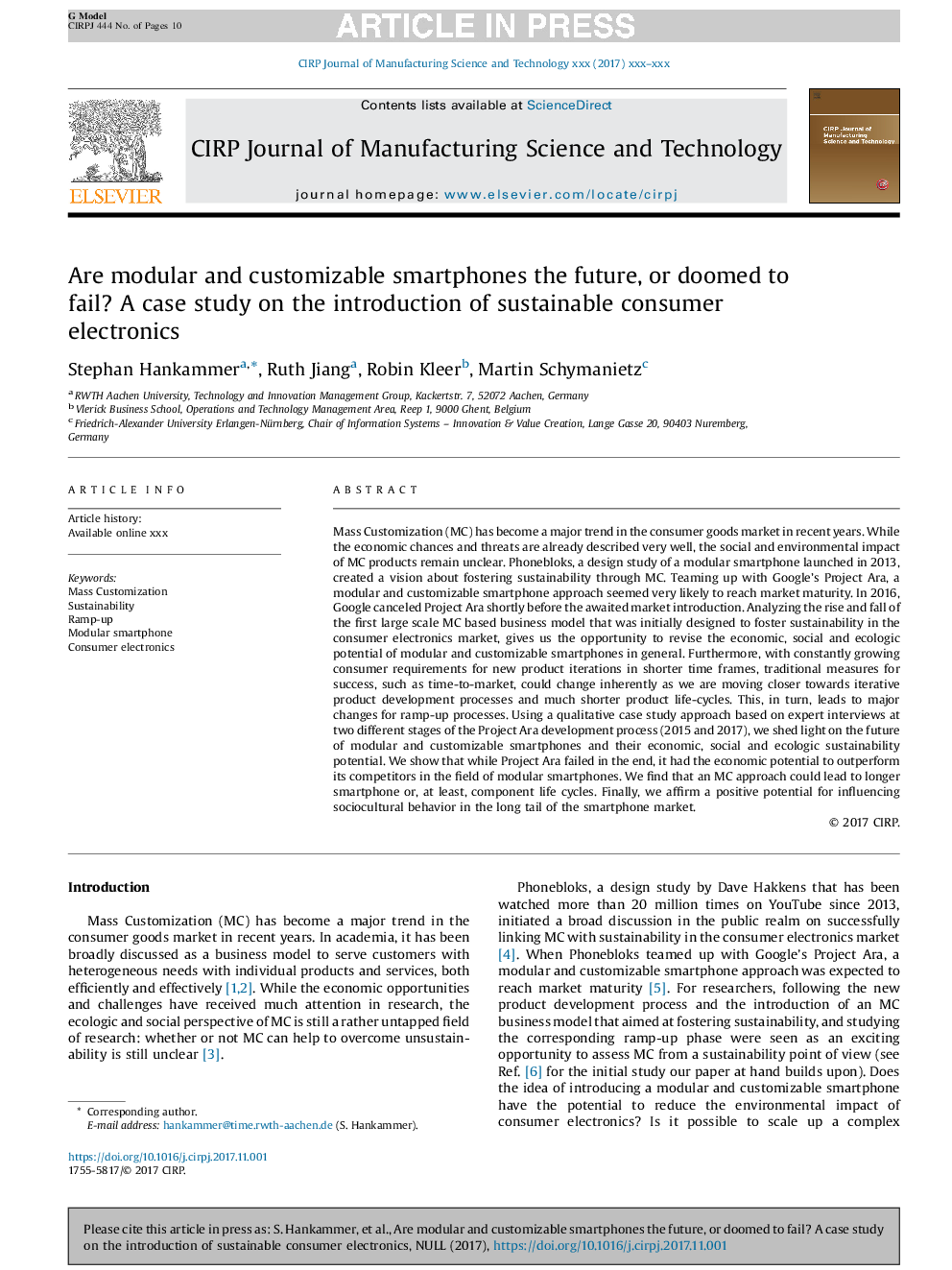ترجمه فارسی عنوان مقاله
آیا گوشی های هوشمند مدولار و قابل تنظیم آینده هستند یا محکوم به شکست هستند؟ یک مطالعه موردی در مورد معرفی لوازم الکترونیکی مصرفی پایدار
عنوان انگلیسی
Are modular and customizable smartphones the future, or doomed to fail? A case study on the introduction of sustainable consumer electronics
| کد مقاله | سال انتشار | تعداد صفحات مقاله انگلیسی |
|---|---|---|
| 162169 | 2017 | 10 صفحه PDF |
منبع

Publisher : Elsevier - Science Direct (الزویر - ساینس دایرکت)
Journal : CIRP Journal of Manufacturing Science and Technology, Available online 22 November 2017
ترجمه کلمات کلیدی
سفارشی سازی انبوه، پایداری، رمپ کردن، گوشی هوشمند مدولار، الکترونیک مصرفی،
کلمات کلیدی انگلیسی
Mass Customization; Sustainability; Ramp-up; Modular smartphone; Consumer electronics;

